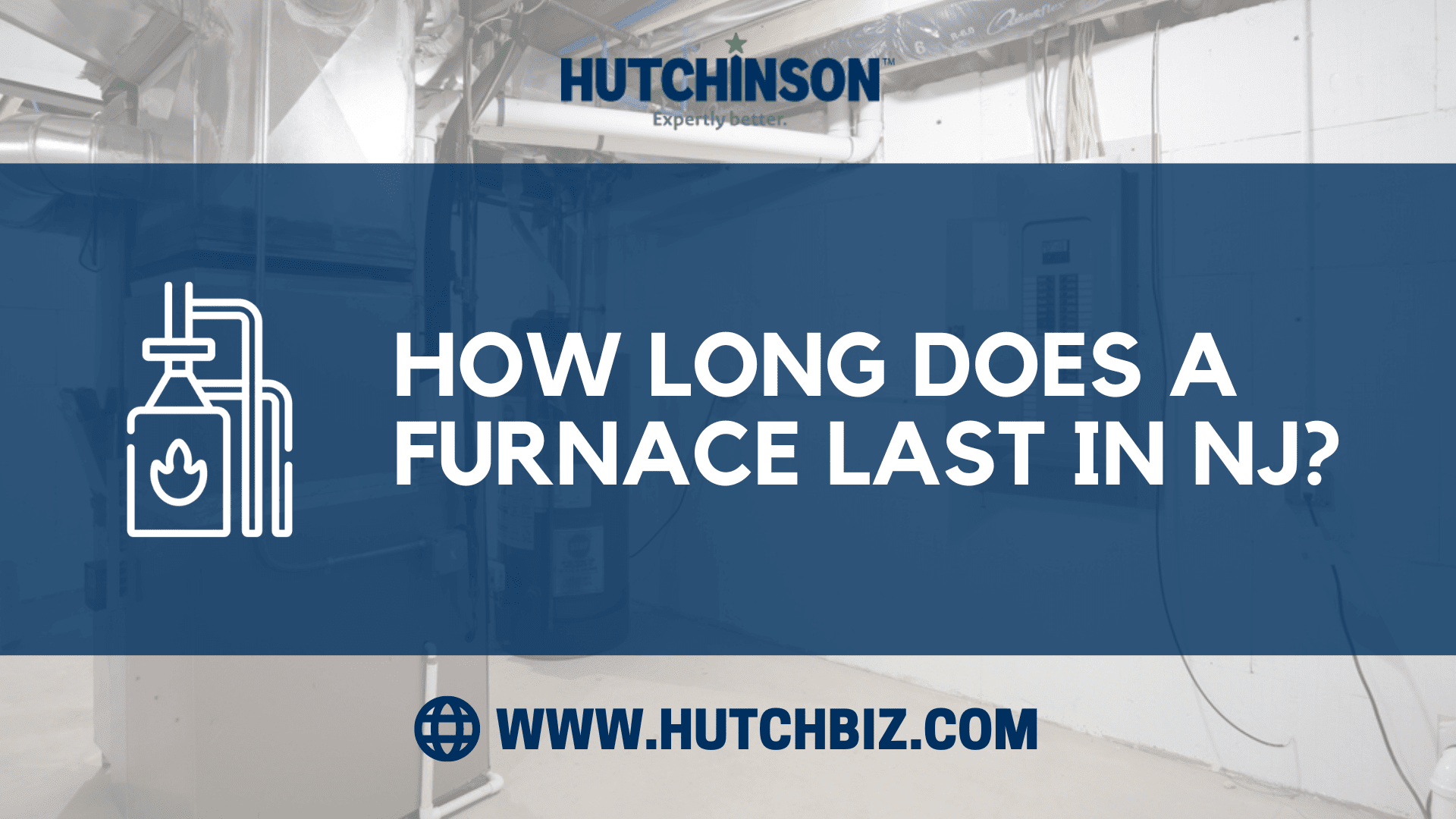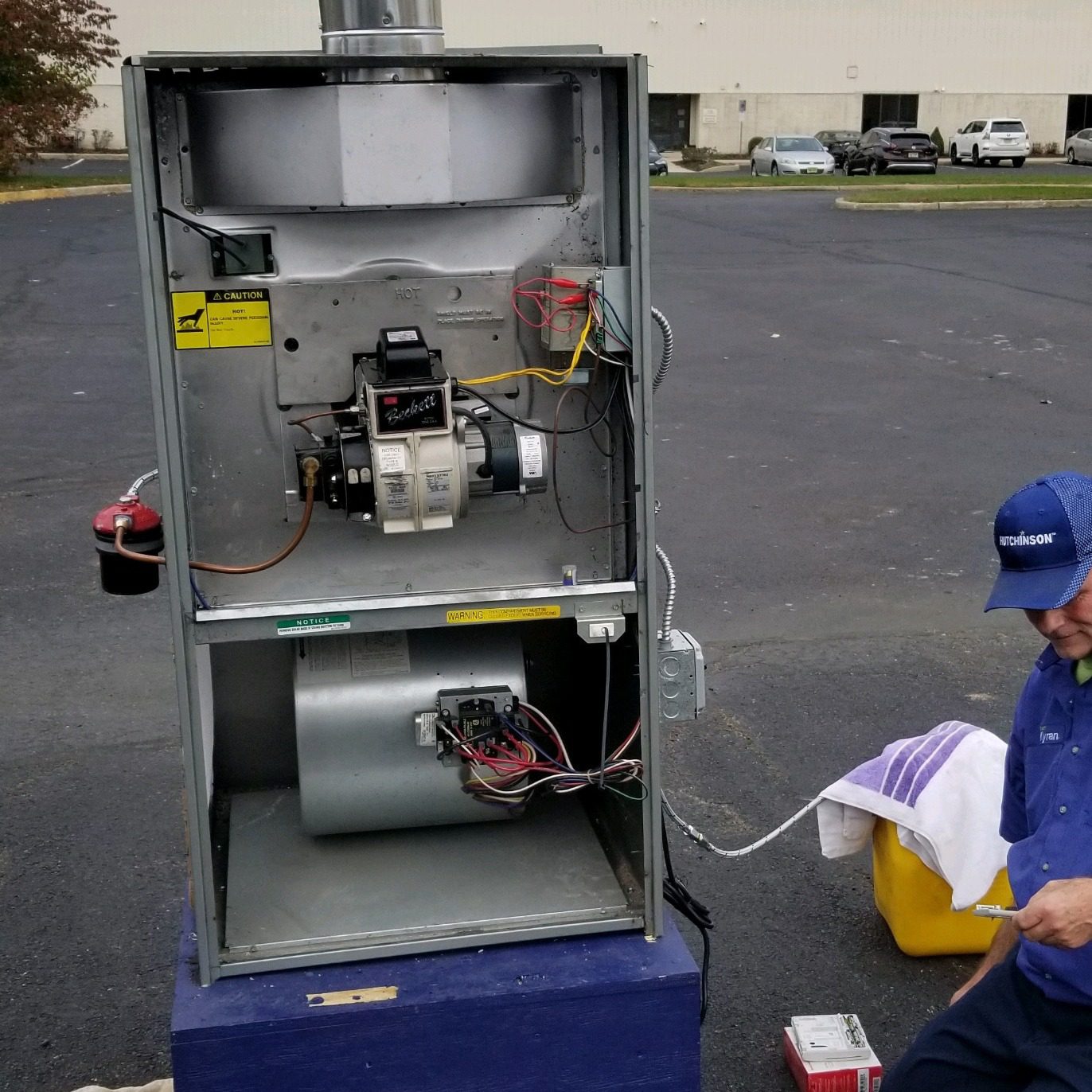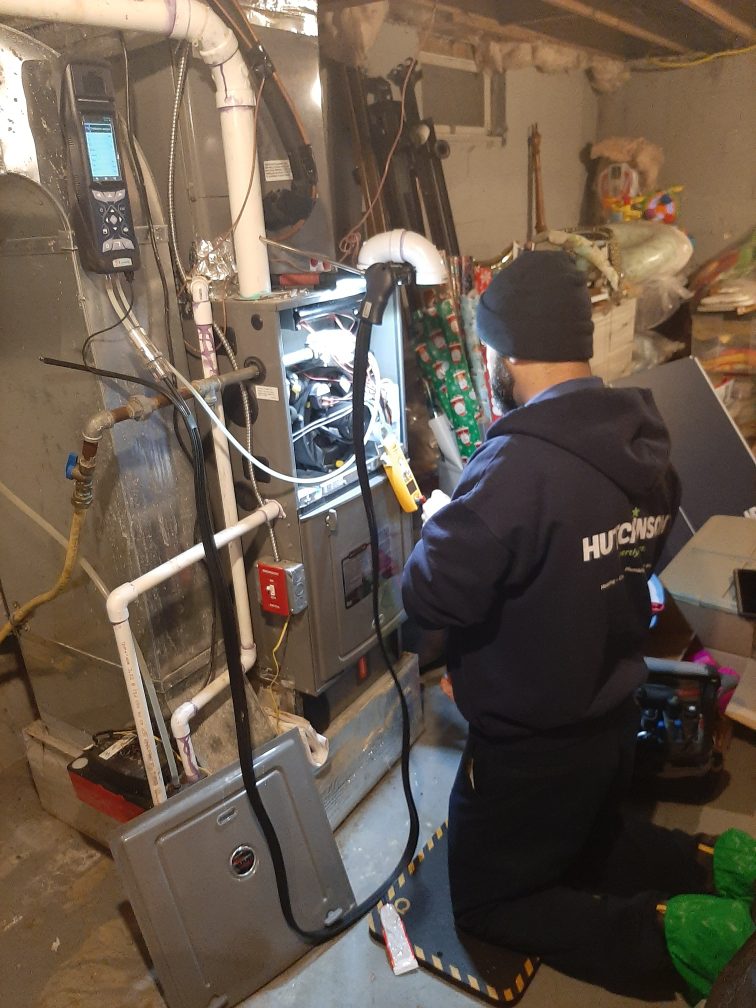
Replacing your furnace isn’t cheap—a new furnace costs between $2,800 to $6,766. Once installed, most homeowners want to do everything they can to get the most out of their furnaces. This means annual tune-up and maintenance services to extend the life of their furnace.
We’ll explain how long a furnace will last in NJ and the different factors that affect your furnace’s lifespan. Your furnace should perform efficiently for a few decades by doing routine maintenance.
The Average Furnace Lifespan Age
A furnace’s average lifespan is between 15 and 20 years. However, this can vary depending on a host of factors. It is important to note that the lifespan of a furnace can be extended by proper maintenance and regular inspections. Scheduling regular tune-ups, cleaning, and repairs can help to keep your furnace operating efficiently and extend its lifespan.
How Long Does a Furnace Last in NJ?

In New Jersey, the average lifespan of a furnace is similar to the national average. While the New Jersey climate can experience extreme temperature changes and high humidity levels that put extra strain on the furnace, other factors will significantly diminish your furnace’s lifespan.
At Hutchinson, we have extensive professional experience servicing, replacing, and installing high-efficiency furnaces and other heating systems in New Jersey and know how to ensure proper installation, maintenance, and repair.
If you live in the New Jersey area, contact one of our heating specialists to learn about our different heating solutions and high-efficiency furnaces.
Related Link: HEATER NOT WORKING? HERE ARE 9 REASONS WHY
Factors That Affect Furnace Life Expectancy
Several factors can affect the life expectancy of a furnace, including:
- Quality of installation: A professional installation ensures your furnace operates efficiently. Poor installation can create improper ventilation, leaks, and other issues that can shorten its lifespan.
- Maintenance: Regular maintenance, like annual tune-ups and cleaning, keeps your furnace operating efficiently. Neglecting your furnace maintenance can build up dirt and debris, which clogs and creates other issues.
- Type of furnace: Different types of furnaces have different lifespans. For example, a high-efficiency furnace has a longer lifespan of 15-20 years rather than a standard furnace which has a lifespan of 10-15 years.
- Frequency of use and extreme temperature settings: If you use your furnace frequently, it may need to be replaced sooner than if you use it infrequently. Also, setting the thermostat too high or too low can damage components and degrade the equipment.
- Quality of materials: Furnaces made with high-quality materials are likely to last longer than those made with lower-quality materials.
- Climate: Furnaces in areas with harsh climates, such as extreme temperatures and high humidity, may experience more wear and tear and need to be replaced sooner than in milder climates.
- Environmental factors: Furnaces in areas with high levels of air pollution or corrosive elements may experience more wear and tear and may need to be replaced sooner than those in cleaner, less corrosive environments.
- Improper furnace sizing: If your furnace isn’t big enough for your heating and air conditioning needs, it could stress the equipment and shorten its lifespan.
Should You Fix Or Replace Your Furnace?

The decision to fix or replace your furnace depends on several factors, including:
Age of Your Furnace
If your furnace is relatively new and the cost of repairs is low, it may be more cost-effective to fix it. However, if your furnace is older and the cost of repairs is high, replacing your furnace with a newer, more efficient model may be more cost-effective.
Furnace Efficiency
If your furnace is outdated and not operating efficiently, it may be more cost-effective to replace it with a newer, more efficient model, even if the cost of repairs is low. This is because a more efficient furnace can reduce your energy costs and save you money on your monthly utility bills in the long run.
Safety Issues
Heating equipment causes 13% of home structure fires and 18% of home fire deaths in the US. If your furnace is experiencing safety issues, such as carbon monoxide leaks, it is important to replace it as soon as possible to ensure the safety of your home and your family.
You should consider all of these factors when making a decision about your furnace and consult with a professional to get an accurate assessment of the situation.
Call Hutchinson Professional Furnace Replacement
When considering furnace replacement, you should seek the assessment of heating experts like us that can evaluate the following:
- The age of your furnace
- Frequency of use
- Furnace efficiency
- The New Jersey climate
At Hutchinson, our professional HVAC technicians can guide you toward the best course of action for your specific situation. We service Camden County, Burlington County, Gloucester, and South Jersey.

